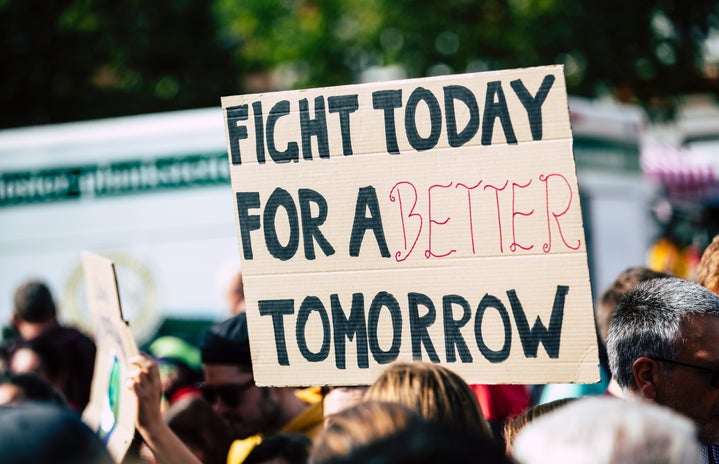The population of farmers in India is mainly composed of Sikhs, a religious minority that the Indian government has been persecuting for years. The farmers’ protests originally began in 2020, when the Indian government passed three laws that would put farmers at the mercy of large corporations and essentially get rid of small farms. As the Sikh people marched the streets for better economic treatment, Indian police quickly turned violent and began hosing farmers with high water pressure and batons. This original protest, which lasted over a year, resulted in over 700 deaths as farmers demanded that the laws be repealed. In late 2021, India’s prime minister Narendra Modhi agreed to repeal these three laws and farmers returned to their homes after negotiating set terms, such as pensions for the families of farmers who were killed. The Indian government poses livelihood-threatening laws against the farmers, and this is no surprise as I have spoken before on the Indian government’s decades long agenda of eliminating the Sikh population.
The negotiated terms were not met by the Indian government and this year Sikh farmers have begun protesting once again. The protest began with the “Delhi Chalo” (let’s go to Delhi) march, as farmers gathered in numerous areas to march to the nation’s capital. The main demands of the farmers include repealing policies that put farmers at risk and setting a minimum support price for all crops. As the previous protest was turned violent by the Indian police, this year it is even more violent. Police in India have created a barricade around the nation’s capital, intercepting the farmers’ protest with tear gas and mass arrests. Mothers of farmers who have been detained by the Indian police have begun hunger strikes demanding the release of their children as they are much too aware of the Indian government’s capability and wish to persecute all Sikhs. Additionally, the Indian government has banned peaceful protesting as they imposed a law that prohibits the gathering of five or more people. Farmers shortly suspended their protest near the end of February as a young farmer was killed at the hands of police but have just started again as their livelihoods are continuously being threatened.
The internet continues one of the Indian government’s greatest tactics. As they did following the unjust arrest of Amritpal Singh and many other prominent Sikh activists, the Indian government has once again shut down its internet. By creating internet blackouts in select areas, it has made it increasingly difficult for the Sikh farmers to show the world the atrocities that the Indian government continues to commit. Now the Indian government is weaponizing the internet more than ever as they have used their power to have several posts, which show the cruel police tactics employed upon farmers, deleted from social media platforms such as X (Twitter). Without acknowledgement and support for the Sikhs from the the world, the Indian government will continue its intended genocide.
Although these laws are directly affecting farmers across the nation in India, the root cause of this issue is the Indian government’s wish to eliminate the Sikh population. They made this clear in 1984 when they commenced a genocide known as “Operation Blue Star” and killed 17,000 Sikhs in their homes, schools, and on the streets. They once again made their intentions clear as just last year the Canadian government announced that there was clear involvement by the Indian government in the death of Hardeep Singh Nijjar, a Sikh leader in Canada. As India’s government uses the internet as its weapon, it is our voices that will help the farmers gain the rights and protection they deserve. Rather than staying silent on the oppression and unjust killing of Sikhs, like the world has notoriously done before, this is our chance to speak up on the countless atrocities committed by the Indian government.

